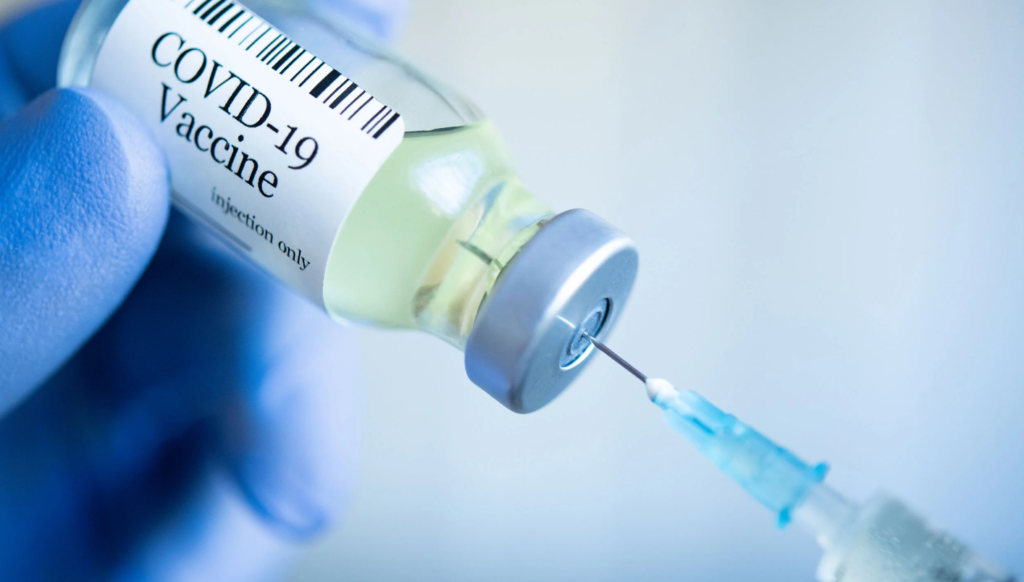Uncover the correlation between white discharge and ovulation in this insightful article.
Understanding the Connection: White Discharge and Ovulation
Ovulation is a crucial part of the menstrual cycle, and understanding its connection to white discharge can provide valuable insights into a woman’s fertility. In this article, we will explore the science behind ovulation, the role hormones play, and the significance of white discharge as an indicator of this important reproductive process. We will also address common misconceptions and provide advice on promoting reproductive health.
Defining Ovulation: A Brief Overview

Ovulation refers to the release of a mature egg from the ovary, making it available for fertilization. This process generally occurs once in each menstrual cycle, typically around the middle of the cycle. The duration of a menstrual cycle can vary, but on average, it lasts about 28 days. Understanding the timing of ovulation is essential for maximizing the chances of conception.
The Role of Hormones in Ovulation
Ovulation is primarily regulated by hormones, specifically follicle-stimulating hormone (FSH), luteinizing hormone (LH), and estrogen. At the beginning of the menstrual cycle, FSH stimulates the growth of follicles in the ovaries, each containing an immature egg. As the cycle progresses, one follicle becomes dominant and continues to grow, producing increasing levels of estrogen.
When estrogen levels reach a certain threshold, it triggers a surge in LH production, causing the dominant follicle to release the mature egg into the fallopian tube. This surge typically occurs about 24 to 36 hours before ovulation. After the release of the egg, the levels of LH decrease, and the remaining follicle transforms into the corpus luteum, which produces progesterone.
The Ovulation Cycle: A Timeline
The ovulation cycle can be divided into three distinct phases: the pre-ovulatory phase, ovulation, and the post-ovulatory phase. The pre-ovulatory phase begins with the first day of menstruation and lasts until the day of ovulation.
Ovulation itself is a brief event that marks the transition from the pre-ovulatory phase to the post-ovulatory phase. During this phase, the mature egg is released from the ovary and moves into the fallopian tube, where it awaits fertilization.
The post-ovulatory phase begins after ovulation and lasts until the start of the next menstrual cycle. If the released egg is not fertilized, the corpus luteum degenerates, and hormone levels decrease. This leads to the shedding of the uterine lining, resulting in menstrual bleeding.
Understanding the intricacies of the ovulation process is crucial for individuals trying to conceive. It is fascinating to think about how the body’s hormones work together to ensure the release of a mature egg and create an optimal environment for fertilization. The delicate balance of FSH, LH, and estrogen plays a vital role in the timing and success of ovulation.
During the pre-ovulatory phase, the ovaries are busy nurturing multiple follicles, each housing a potential egg. It is remarkable to consider the complex process of follicle development and how the body selects one dominant follicle to continue growing while others regress. This selection process ensures that the most mature and viable egg is released during ovulation.
The surge in LH production that precedes ovulation is a crucial event. It is fascinating to think about how the body knows precisely when to release the mature egg, ensuring it is in the fallopian tube, ready for fertilization. This surge in LH is a testament to the body’s intricate timing mechanisms and its ability to orchestrate the reproductive process with precision.
Once the egg is released, it embarks on a journey through the fallopian tube. The fallopian tube provides a nurturing environment for the egg, allowing it to meet sperm and potentially become fertilized. The intricate structure and function of the fallopian tube are essential for successful conception.
If fertilization does not occur, the post-ovulatory phase marks the end of the current menstrual cycle. It is fascinating to consider how the body recognizes the absence of fertilization and begins the process of shedding the uterine lining. This shedding prepares the uterus for the next menstrual cycle, starting the ovulation process anew.
Understanding the ovulation cycle and the various phases it encompasses provides valuable insight into the complexities of human reproduction. It is a testament to the remarkable capabilities of the female body and the intricate interplay of hormones and reproductive organs.
White Discharge: What Does It Mean?
Vaginal discharge is a normal physiological occurrence in women. It plays a crucial role in maintaining vaginal health by lubricating the vagina, flushing out bacteria and other foreign particles, and providing protection against infections.
The color, consistency, and volume of vaginal discharge can vary throughout the menstrual cycle. White discharge, also known as leukorrhea, is one of the common types of discharge experienced by women. It is typically thick and milky in appearance and may increase in quantity during ovulation.
The Science Behind Vaginal Discharge
The production of vaginal discharge is influenced by various factors, including hormonal fluctuations and the presence of cervical mucus. The cervix produces mucus that changes in consistency and appearance throughout the menstrual cycle due to the effects of estrogen and progesterone.
During ovulation, estrogen levels peak, causing the cervical mucus to become abundant, slippery, and stretchy. This fertile mucus serves as a conducive environment for sperm, facilitating their journey towards the egg. The increased production of cervical mucus during ovulation may contribute to the greater volume of white discharge observed during this phase of the menstrual cycle.
Furthermore, the composition of vaginal discharge is not solely influenced by hormones. The vagina is home to a diverse community of microorganisms, collectively known as the vaginal microbiota. These microorganisms, including Lactobacillus species, play a crucial role in maintaining the acidic pH of the vagina, which helps prevent the overgrowth of harmful bacteria and yeast infections.
The vaginal microbiota produce substances, such as lactic acid and hydrogen peroxide, that contribute to the natural defense mechanisms of the vagina. These substances help maintain a healthy balance of microorganisms and contribute to the overall quality and composition of vaginal discharge.
Normal vs. Abnormal Discharge: Key Differences
While white discharge is generally considered normal, there are instances when it may indicate an underlying issue. Normal white discharge is typically odorless or has a mild, not unpleasant scent. It should not cause itching, burning, or irritation.
If the discharge has an unusual color, such as yellow, green, or gray, a strong odor, or is accompanied by itching or discomfort, it could be a sign of an infection or other medical condition. In such cases, it is advisable to consult a healthcare professional for an accurate diagnosis and appropriate treatment.
It is important to note that the presence of white discharge alone does not necessarily indicate a problem. It is a natural part of the body’s self-cleaning mechanism and can vary in consistency and quantity from person to person. However, if you have any concerns or notice any changes in your vaginal discharge, it is always best to seek medical advice to ensure your reproductive health.
The Link Between White Discharge and Ovulation
White discharge can serve as a valuable clue when it comes to identifying the timing of ovulation and optimizing the chances of conception. The consistency and timing of white discharge can provide insights into changes in hormone levels and the fertile window.
Hormonal Changes and Discharge
As mentioned earlier, the increase in estrogen levels during ovulation stimulates the production of fertile cervical mucus, which may manifest as increased white discharge. Monitoring the changes in discharge consistency can help individuals identify the period of increased fertility.
Some methods, such as observing the changes in cervical mucus or using ovulation predictor kits, can aid in identifying the fertile window more precisely. These methods, coupled with monitoring changes in discharge, can be valuable tools for those who are actively trying to conceive.
Timing and Consistency: Indicators of Ovulation
In addition to changes in the consistency of white discharge, its timing in relation to other ovulation symptoms can further support the identification of ovulation. Many individuals may experience other signs of ovulation, such as mid-cycle abdominal pain, breast tenderness, or a heightened sense of smell.
When these symptoms align with an increase in white discharge, it can be a strong indicator that ovulation is imminent or has already occurred. Tracking these changes can help individuals better understand their cycle and increase the chances of successful conception.
Misconceptions About White Discharge and Ovulation
Given the significance of white discharge in relation to ovulation, it is important to address common misconceptions surrounding this topic. By debunking these myths, we can ensure individuals have accurate information and make informed decisions about their reproductive health.
Debunking Common Myths
One common myth is that white discharge is a reliable indicator of pregnancy. While increased discharge can occur early in pregnancy for some women, it is not a definitive sign of pregnancy on its own. Multiple factors, including hormone levels and individual variations, can influence changes in discharge.
Another myth is that experiencing white discharge means something is wrong or abnormal. As previously mentioned, white discharge is a normal occurrence in women and can vary in consistency and volume throughout the menstrual cycle. However, any significant changes in color, odor, or accompanying symptoms should be evaluated by a healthcare professional.
When to Seek Medical Advice
Though white discharge is generally normal, there are situations where it is advisable to consult a healthcare professional. If the discharge is accompanied by persistent itching, burning, or irritation, or if it has an unusual color or strong odor, it may indicate an infection or other underlying issue that requires medical attention.
If you are actively trying to conceive and have concerns about fertility or irregularities in your menstrual cycle, it is also recommended to seek the guidance of a healthcare provider who specializes in reproductive health.
Promoting Reproductive Health
Maintaining optimal reproductive health is essential for overall well-being and fertility. By taking proactive steps and adopting healthy habits, individuals can promote their reproductive health and increase their chances of successful conception when desired.
Importance of Regular Check-ups
Scheduling regular check-ups with a gynecologist or reproductive health specialist is crucial for monitoring overall reproductive health. These healthcare professionals can conduct necessary tests, offer guidance on fertility, and address any concerns or questions regarding white discharge and ovulation.
Healthy Habits for Optimal Reproductive Health
Adopting healthy habits can have a positive impact on reproductive health. Eating a balanced diet, engaging in regular physical activity, managing stress levels, and avoiding smoking and excessive alcohol consumption are all important factors in promoting overall wellness and fertility.
Additionally, maintaining good hygiene practices, such as wearing breathable cotton underwear and avoiding harsh chemicals, can help prevent infections and maintain the natural balance of the vaginal environment.
Understanding the connection between white discharge and ovulation is crucial for individuals looking to conceive or gain insights into their menstrual cycle. By being aware of the hormonal changes, the significance of white discharge, and common misconceptions, individuals can make informed decisions about their reproductive health. Prioritizing regular check-ups and adopting healthy habits can further support optimal reproductive health. By taking these steps, individuals can empower themselves with knowledge and increase their chances of attaining their desired reproductive goals.




